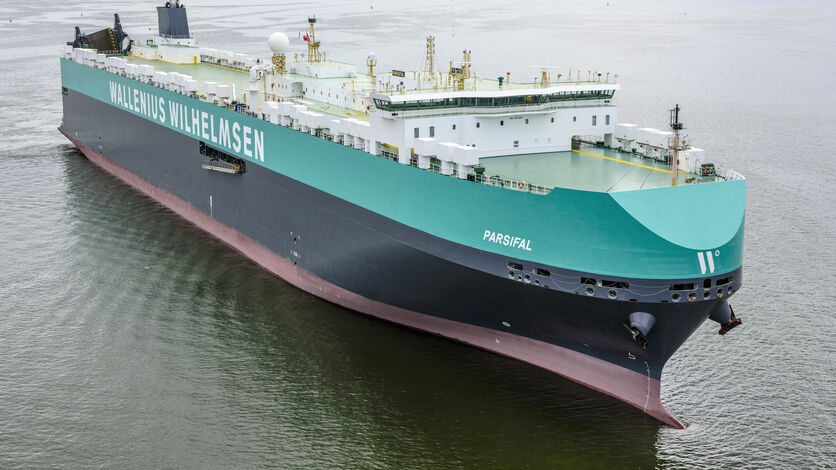
In the vast expanse of global shipping and logistics, Wallenius Wilhelmsen stands as a beacon of sustainability and innovation. With a history spanning over a century, the company has evolved into a leading force in the maritime industry. This article delves into the origins, growth, and sustainable practices of Wallenius Wilhelmsen, exploring how it has become a key player in shaping the future of shipping.
Table of Contents
ToggleOrigins and Evolution:
The story of Wallenius Wilhelmsen began in 1934 when two Scandinavian shipping giants, Sweden’s Wallenius and Norway’s Wilhelmsen, joined forces to establish a collaborative venture. Their aim was to create a shipping company that would specialize in the transportation of cars, a niche market that was gaining momentum with the rise of the automotive industry.
Over the decades, the company experienced significant growth and diversification. It expanded its services beyond car transportation to include a wide range of rolling and breakbulk cargo. Wallenius Wilhelmsen became a global player, fostering a strong presence in major trade routes and establishing itself as a reliable partner for manufacturers around the world.
Sustainability Initiatives:
As the maritime industry faces increasing pressure to reduce its environmental impact, Wallenius Wilhelmsen has emerged as a pioneer in implementing sustainable practices. The company has embraced a holistic approach to environmental responsibility, focusing on areas such as fuel efficiency, emissions reduction, and green technology adoption.
One of the key initiatives undertaken by Wallenius Wilhelmsen is the development and deployment of eco-friendly vessels. The company has invested heavily in designing and building ships that utilize advanced technologies to minimize their carbon footprint. From innovative propulsion systems to energy-efficient designs, these vessels represent a significant step forward in making maritime transportation more sustainable.
Additionally, Wallenius Wilhelmsen has actively engaged in research and development projects to explore alternative fuels. With a commitment to reducing greenhouse gas emissions, the company is at the forefront of testing biofuels, hydrogen, and other renewable energy sources. This forward-thinking approach positions Wallenius Wilhelmsen as a leader in the quest for cleaner and greener shipping solutions.
Corporate Responsibility and Social Impact:
Beyond environmental sustainability, Wallenius Wilhelmsen places a strong emphasis on corporate responsibility and social impact. The company recognizes its role in the communities where it operates and actively seeks to contribute positively to society.
One notable aspect of Wallenius Wilhelmsen’s corporate responsibility is its commitment to diversity and inclusion. The company promotes a work environment that values different perspectives, backgrounds, and experiences. By fostering a diverse workforce, Wallenius Wilhelmsen not only enhances its organizational culture but also contributes to the overall advancement of the maritime industry.
Moreover, the company engages in various community outreach programs, supporting local initiatives and charities. From educational projects to environmental conservation efforts, Wallenius Wilhelmsen strives to make a meaningful difference beyond the realm of shipping. This commitment to social responsibility has earned the company recognition and praise from both stakeholders and the wider public.
Challenges and Adaptations:
While Wallenius Wilhelmsen has made significant strides in sustainability, the maritime industry continues to face challenges on multiple fronts. Regulatory changes, geopolitical uncertainties, and the ongoing global economic landscape pose continuous hurdles for companies in the shipping sector.
In response to these challenges, Wallenius Wilhelmsen has demonstrated adaptability and resilience. The company remains proactive in staying abreast of regulatory developments and adjusting its strategies accordingly. By investing in technology, infrastructure, and talent, Wallenius Wilhelmsen positions itself to navigate the complex and ever-changing dynamics of the maritime business.
Innovative Technologies and Digitalization:
The digital transformation of the shipping industry is another area where Wallenius Wilhelmsen has been proactive. Embracing innovative technologies such as blockchain, IoT (Internet of Things), and data analytics, the company aims to enhance efficiency, transparency, and overall operational performance.
Digitalization plays a crucial role in optimizing supply chain management, reducing delays, and improving the tracking and monitoring of cargo. Wallenius Wilhelmsen’s commitment to staying at the forefront of technological advancements positions the company as a leader in driving industry-wide innovation.
Conclusion:
Wallenius Wilhelmsen‘s journey from a collaboration between two Scandinavian shipping giants to a global leader in sustainable shipping is a testament to its adaptability, innovation, and commitment to corporate responsibility. As the maritime industry faces unprecedented challenges, companies like Wallenius Wilhelmsen provide a blueprint for navigating the seas of sustainability.
With a focus on eco-friendly vessels, alternative fuels, and digitalization, Wallenius Wilhelmsen stands as a trailblazer in shaping the future of maritime transportation. As the company continues to evolve and address the complexities of the modern shipping landscape, it remains a beacon of inspiration for those seeking to balance economic success with environmental and social responsibility in the maritime industry.
